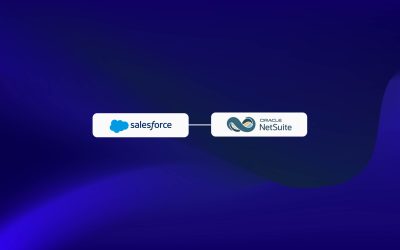“e-Commerce empowers you to manage multi-channel orders, eliminate product shortages and shipping delays, via online data and secure payment processes.”
Andrew Andreoli
VP of Sales
Trajectory Group
- Time to read: 8 mins
- You are: CTO, COO
- Drink Pairing: A glass of rosé 🍷
eCommerce platforms widen your customer reach and can drive up overall sales
Buying products online is, for many product segments, the only option customers have right now. There is no end in sight as to when things will go back to normal. Not only are customers expecting to be able to browse your product offering and place orders online, but they are expecting expedited shipping times, and first-class customer service. Here’s what your eCommerce platform must possess for you to succeed:
- Accurate Stock Levels – When browsing on your online store, customers need to be able to know, in real-time, whether or not you have something in stock. This means your eCommerce store needs to have a reliable tie-in with your back-end systems. Inaccurate inventory levels on your storefront can lead to a drop in customer satisfaction, inevitably driving them elsewhere.
- Flexible Shipping Options – Customers have generally become less and less tolerant of extended shipping times. This trend has intensified during the current global crisis. Online shoppers want the option of having something delivered to their doorstep on the same day, and many times are willing to pay a premium for this. Not having these options will lead them to shop elsewhere. Additionally, they are intolerant of shipping delays and inventory stock-outs, meaning businesses need to ensure that inventory levels between their systems are synced, and up to date, to ensure customer retention.
- Varied Payment Methods – Online payment processing methods have really evolved over the last few years. In addition to your typical options like credit cards and PayPal, new eCommerce retailers are now supporting innovative payment plans, such as Sezzle or Affirm – which allow customers to pay for products in interest-free periodic payments.
- Synchronization with your Back-end Systems – Ensuring that data flows efficiently between your eCommerce store and your accounting and order fulfillment platforms is key. You need to be able to process an order placed by a customer, and pick, pack, and ship the product accurately and quickly. Data should then flow back to your online store such that customers can track their orders. This means that you will require a reliable integration platform to lean on.
- Efficient Change Management Processes – Changes to orders placed by customers are commonplace. Customers may change their minds about a product, or mistakes may happen during the order-to-cash cycle. The ability to process returns, credits, and refunds efficiently in your ERP system, without hindering internal productivity, is key to maintaining customer retention.
Manage all orders in one place, and enable a “buy-anywhere, fulfill-anywhere” experience
Now that we know what the qualities of an ideal eCommerce platform are, let’s look at the options you should be evaluating.
While most people look at NetSuite as an excellent ERP system, it sometimes goes unnoticed that NetSuite also has an eCommerce solution – the Webstore.
- Multiple Tiers – This product comes in a few different flavours, and the difference lies mainly in the degree of customization that is supported. At one end, NetSuite offers SiteBuilder, which is a basic version that comes with predefined templates that can be used to set up the webstore. This does, however, come with limited flexibility, and is geared towards businesses who want a rather basic-looking site. The advanced version offers a wider range of customization options.
- Coding is Required – If you have certain functionality that is unique to your business, you will likely need to customize the webstore. This customization will require coding and requires you to use the advanced version of SuiteCommerce. While utilizing code will help you achieve the webstore design and layout you’d like, it does come at an additional cost, and will likely extend your implementation timeline.
- NetSuite Native Application – Because the webstore is built as an extension to your NetSuite ERP, you don’t need to build a special integration to sync data from your webstore to NetSuite. This means a seamless flow of data from and to NetSuite ERP.
- Customer Portal (My Account) – Enables customers to log into their account on your webstore and create product lists for items they’d like to purchase, place orders, view transaction history, make payments, and update contact information, among other activities. This feature comes with the SuiteCommerce module discussed above.
Shopify Integration 
- Connected Through Dell-Boomi – Syncing your Shopify storefront with NetSuite will require an integration middleware. Fortunately, Dell-Boomi offers pre-built templates and leverages existing NetSuite and Shopify connectors that can be used to build a simple integration, with limited use of code.
- Easy to Set Up – Setting up the look and feel of your actual storefront is even simpler, and does not need specific technical expertise. This allows you to start selling products online quickly, and at a low cost. In many cases, you’re able to set up your storefront on your own!
- Record Types – The Dell-Boomi integration allows you to sync specific records between NetSuite and Shopify. For example, you can sync Shopify orders with NetSuite sales orders, such that when a customer orders a product on your store, a corresponding sales order (or cash sale) record is automatically created in NetSuite. As mentioned earlier, enabling customers to track order progress is key. By syncing item fulfillments in NetSuite to fulfillments in Shopify, customers can track the delivery status of their shipment, estimated arrival times, and billing updates.
- Multiple Tiers – Shopify offers different pricing tiers for the use of their platform, depending on the revenue bracket you are in, and the desired functionality. See also Shopify Plus.
Let us help you achieve an eCommerce enablement that suits your unique needs and positions you to scale
Now that you’ve seen why eCommerce is crucial in today’s environment, and have an idea of the options out there. How do you make a decision? Your choice will depend on your specific needs.
Shopify for a templated eCommerce Store – If the eCommerce platform you are looking to develop is more on the simpler end, and will run on basic functionality that fits predefined, standardized templates, then Shopify is your best bet. The simplicity of its setup makes it a strong candidate for smaller businesses with industry-standard practices.
NetSuite Webstore for Flexibility – If you envision your eCommerce store to have company-specific functionality that requires a great deal of customization, and possibly HTML coding, then you’ll need the advanced version of the NetSuite Webstore to achieve that. The development of the webstore will definitely require professional services help.
The key goal, whichever path you choose, is ensuring you have an enterprise architecture that unifies your existing business applications with your e-commerce storefront, allowing data to flow seamlessly between them, and enabling your organization to respond to ever-evolving customer demands.
See Trajectory IT Solutions or the Products we are experts implementing.



